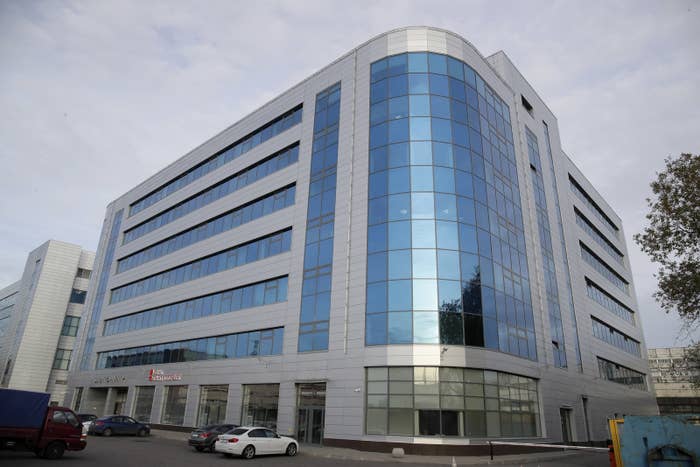
What's the difference between a political operative and an internet troll? The answer isn't as clear as you might think.
Last month the New York Times reported that “a group of Democratic tech experts” created digital campaigns in Alabama’s special Senate election that were inspired by the Russian influence operations targeting American voters in 2016. We’ve since learned from additional reports that multiple groups were running similar campaigns targeting Alabama voters in that 2017 race.
Some of these ads, such as those falsely suggesting the staff of Republican candidate Roy Moore was working with a Russian botnet, clearly crossed an ethical redline. Others, like the creation of anonymous Facebook pages to persuade Republican voters not to vote for Moore, were sketchy but not against Facebook’s rules for political ads at the time. It’s also worth noting that other independent expenditure groups, including super PACs, were probably also running ad campaigns that didn’t look or feel all that different than the supposedly Russian-inspired tactics. And their money would have also come from a small handful of anonymous donors with deep pockets.
The news that American political operatives used Russian trolling tactics to sway voters has caused a lot of concern, including from the victor of that election, Sen. Doug Jones, who has called for a federal investigation. In 2016 Russian trolls pitted Americans against one another, attempted to suppress African American voters, and called for violence. They continue to operate on social media platforms and our government does little to stop them. It’s upsetting to think that American political professionals might be deploying similar tactics.
But the truth is, there's a thin line between trolls and some political pros. Political campaigns and independent expenditure groups have adopted a variety of shady strategies and tactics that involve targeting voters with trollish behavior, and Russia’s intervention in US elections is merely part of a much larger problem. Last year, a BuzzFeed News investigation uncovered a hyperpartisan news site connected to several pro-Trump super PACs. The site used clickbait headlines to drive email sign-ups and presumably build a lucrative fundraising list.
Then there's Florida Gov. Ron DeSantis and Arizona Republican Senate candidate Kelli Ward and her husband, who were admins of a racist conspiracy Facebook group while they were on the campaign trail, a fact that they did not disclose until they were caught. Oculus founder Palmer Luckey, flush with hundreds of millions of dollars after selling to Facebook, came under fire for a $10,000 donation to a super PAC dedicated to supporting Donald Trump by creating and disseminating negative “shitpost” memes about Hillary Clinton. Political consultants for who worked for Roy Moore in Alabama now own and operate Big League Politics, a conspiratorial pro-Trump news site, while continuing to work for political clients.
Counterterrorism expert Clint Watts has predicted that it will become standard practice for US political campaigns to hire troll farms, and research from the University of Oxford’s Computational Propaganda Research Project suggests this is a global problem that will get worse before it gets better. Corporate America has also dabbled with trolling as a strategy, most notably when Facebook hired a Republican communications firm that operated its own news aggregator that ran negative stories about Facebook’s competitors and pushed opposition research on George Soros, suggesting he was funding groups opposed to some of Facebook’s business practices. The American Fuel & Petrochemical Manufacturers, a trade association for oil companies, was recently caught dodging Facebook’s ad transparency rules to run political ads that masked who was paying for them entirely.
American voters are particularly vulnerable to being targeted by political trolling. Our campaign finance system allows wealthy donors to give unlimited, virtually untraceable money to outside groups, and almost anyone can start a super PAC to take these contributions with little disclosure required. The rules for online political ads are painfully out of date and the agency charged with regulating them, the Federal Elections Commission, is barely functional, particularly since the Trump administration refuses to replace commissioners when their terms expire. Facebook, Google, and Twitter all recently updated their policies, but there’s no law or regulation in place to hold them accountable, and the one proposed law members of Congress have in the hopper has little chance of passing anytime soon.
What does all this mean? Thanks to our broken campaign finance system, wealthy interests can spend unlimited money to influence our elections, and thanks to the intentional sabotage of the FEC, there is almost no mechanism to stop bad actors — whether foreign or domestic. And thanks to Big Tech, a vast and highly influential new information ecosystem is now wildly susceptible to hijacking by liars and propagandists for political purposes.
The problem isn’t just that political operatives have adopted Russian tactics. It’s that our political system isn’t built to withstand the weight of trolling from hostile actors. What happened in the Alabama Senate race wasn’t an anomaly but our new normal heading into 2020. Until our campaign finance system undergoes serious structural changes, American voters will continue to be vulnerable to trolling of all kinds — be it from Russia or our own backyard.
Melissa Ryan writes Ctrl Alt-Right Delete, a weekly newsletter covering extremism and online toxicity. Previously she spent a decade leading digital campaigns for nonprofits and political races, including EMILY’s List, Barack Obama’s 2012 reelection campaign, and former Wisconsin senator Russ Feingold.
